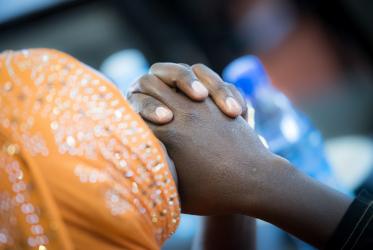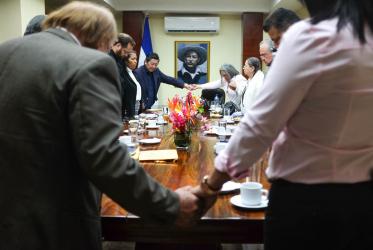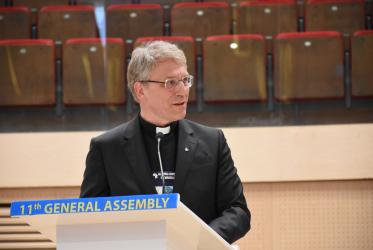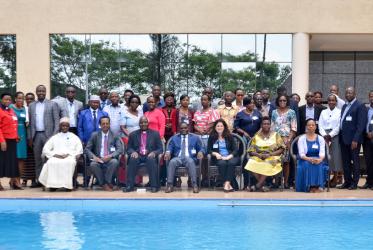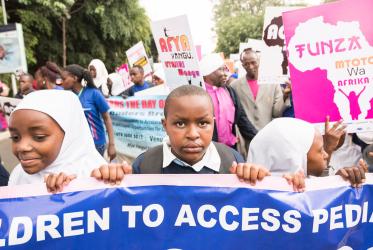Displaying 1 - 20 of 23
Theological education in Africa promotes social transformation
03 November 2022
WCC honours legacy of Rev. Norman Bent
25 May 2020
Young Africans are eager to grapple with challenges
09 January 2020
WCC hones training on attitudes toward HIV treatment
06 December 2018
New Executive Committee members elected in Trondheim
28 June 2016
